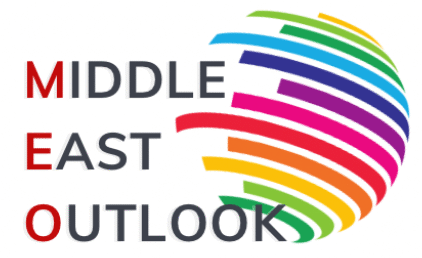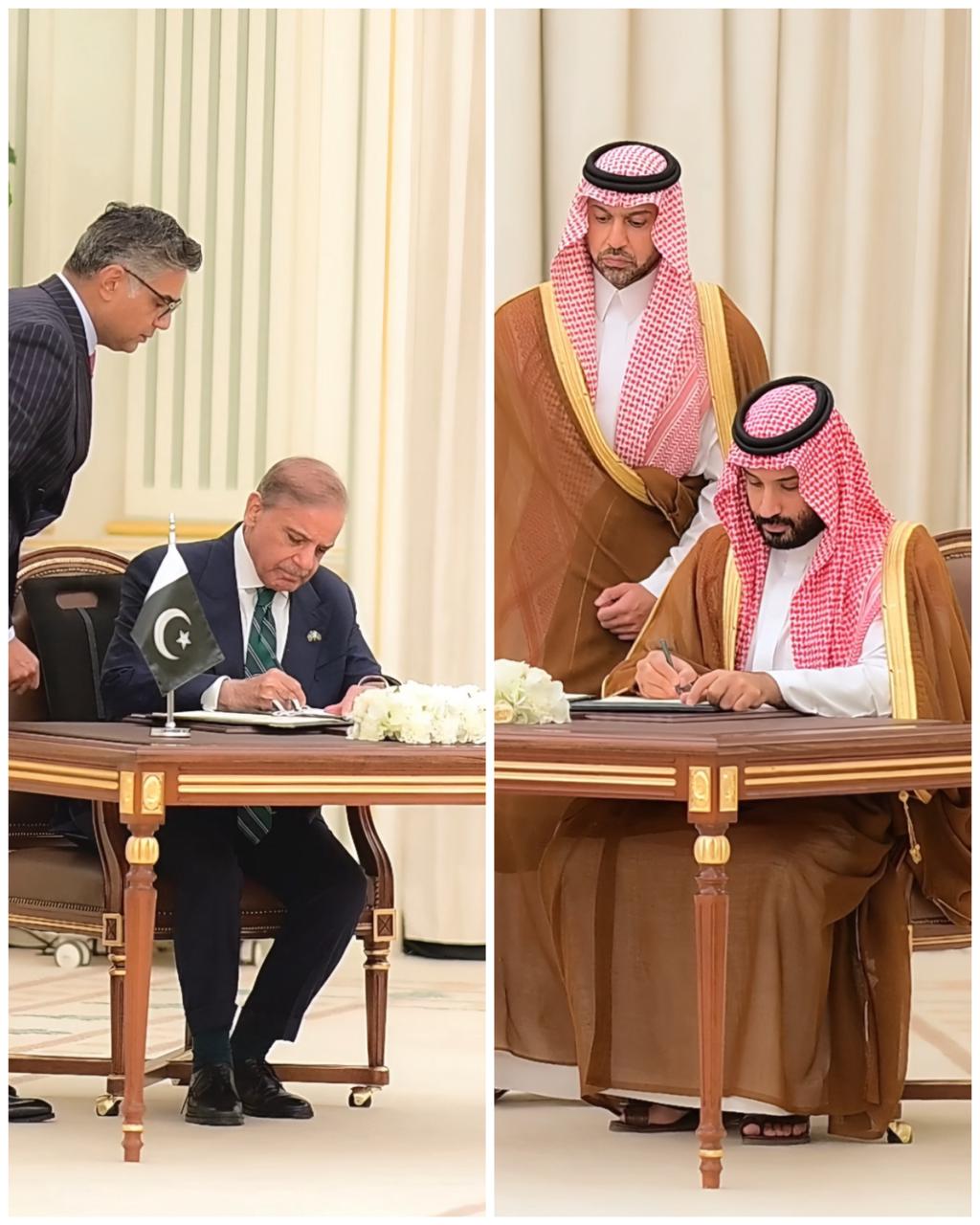In an argument on what collective security really means, the influential realist thinker Hans Morgenthau remarked, it means “One for all and all for one”. This opens a Pandora’s box; the limitation and the nature of such agreements when it comes to operationalization?
The recent Saudi-Pak comprehensive defense agreement has two significant points: (a) Any aggression on either of the countries will be seen as a common threat, (b) The agreement includes all means without mentioning a nuclear shield. Whether the nature of this comprehensive agreement has an oral commitment of using nuclear shield or was purposely left with its exactness due to legal and political attention, including political crosshairs that would be open to interpretation, optics and secrecy. The pattern of any comprehensive defense security has always suffered three critical points: (a) Legal Status, (b) Political calculus and (c) Operational limitations.
Saudi Arabia and Pakistan have had an enduring defense relationship since the birth of Pakistan on 14 Aug 1947. The rise of Pakistan as a security state has helped Saudi Arabia to maintain its close relationships with it beyond the fallacy of brotherhood optics that Pakistan mainly uses for its own identity dilemma. The framework of Saudi-Pakistan defense relationships has also been tested over the period from the lens of Pakistan’s dilemma over choosing sides in the Saudi-Iran rivalry and Pakistan’s refusal to participate in the Saudi-Yemen war in the past.
Three serious factors make sense and send an alarm as well. First, Pakistan has previously been closer to the US-centric defense mechanism during the peak of the Cold War between the US and the Soviets. The act of warding off Soviets influence, Pakistan became materially beneficial for American geopolitical calculations, which popularly known as the South East Asia Treaty Organization (SEATO)and CENTO (Central Treaty Organisation also known as Baghdad Pact) respectively signed in 1954 and 1955. It argues, therefore such agreements have been in the past due to Pakistan’s strategic value to hegemons. The second factor also highlights the catharsis that such pacts didn’t work out even during the height of the Cold War, and didn’t work beyond Pakistan’s ability as a strategic asset or in loose terms, a mercenary to manage the hegemon’s dirty work.
The third factor, therefore, argues what would potentially be the fate of such a comprehensive agreement that might alarm many, including India, Iran, Israel and even the US. Can Saudi Arabia really have the ability and political will to abide by such an agreement in Pakistan’s strategic goals, including hurting India or whether Pakistan can go against Iran or any other formidable power for the Saudis? It appears that reality might be stranger than fiction. Optics has a strategic value in an uncertain international structure, but substance needs to be fed well; it appears that it needs to have an authentic examination.
There is always a division between the two worlds: the world of books vs the world of reality. How one then looks and reads the strategic importance, timing, message and noise it has created, particularly in India.
The Timing
One of the fallacies here is that the agreement earned much hype and alarmed many due to its timing. The recent madness of Netanyahu’s fanatic Israeli decision to bomb Doha was foolish, radical and unwarranted. There was a collective disapproval across, but it has seriously damaged the so-called Gulf security Umbrella provided by the US. The Egyptian proposal of “Islamic NATO” might be a pipe dream due to its operational challenges and inter-rivalries among Arab nations, but it came in handy for Pakistan as a possible net-security provider. Pakistan, being the only nuclear Muslim State, found an unprecedented opportunity.
The Saudi-Pakistan deal is a defining moment of Pakistan’s strategic goals to expand its horizon. Pakistan’s major problem has been its economy; similarly, security has been for the Gulf countries. This could open a gateway for such agreements beyond Saudi Arabia. Pakistan can fill in here as a client state and security provider to the rich Gulf nations. It will be a win-win situation, including renting out the nuclear bomb. Further notable shift is the security dilemma among the Gulf countries, opening the gateway for armament in the region.
The Message
Arguably, the Saudi-Pak agreement has sent three important messages. First, Gulf countries can’t trust the American security umbrella as a last resort. The Doha bombing has seriously challenged the myth of Gulf sovereignty and further trivialized the US influence. The Gulf nations won’t trust America for their national security as they have started looking deeper and beyond traditional security mechanisms. This came as a shock for many Arab nations and a retreat of American power that has no control over Israel, or perhaps a trust deficit against American involvement.
Interestingly, the Gaza genocide didn’t alarm Gulf nations until they felt unease in their own backyard. It’s clear that the rich Gulf nation has found a reason for re-evaluating its security compass: they want to rent their threat to Pakistan. Secondly, this Saudi-Pak agreement could possibly shape a defining moment and a windfall of opportunities for Pakistan in setting many goals to find a permanent solution in managing the dead economy. The Saudi-Pakistan relationship or a possible future Gulf-Pakistan agreement will be based on the simple fact that Pakistan can’t repay the billions of dollars, as they have nothing innovative to offer in its modernization program, either, but can play the role of available mercenary if the need is serious. Pakatan fits in many calculations. The third Message is new regionalism in making an uncertain world order. Trump’s behavior has made the anarchy real, and China can’t fit either due to its refusal to become another global police and believes more in business than in becoming a trusted ally. Somewhere, the horror of cultural groupism can return at least for optics.
The Noise
The response to the Saudi-Pakistan deal created much noise in India and found an alarming place in major headlines worldwide. Media and experts have been analyzing the noise, the hype and the substance. For India, Pakistan is always looking for opportunities to create an illusion of parity, either by becoming a swing state to China and the US or by making New Delhi nervous by sealing a close defense pact with the most formidable Muslim State. It appears that India’s response is measured. Its official statement underscores the magnanimity, but the media has reduced the world to an India-centric one. Each country has its own security challenges and thus looks for deals to safeguard its national security.
One fundamental flaw in India’s response has been that it looks at it with indifference. On the contrary, Pakistan is selling it in glorious ink. The problem is that the deal needs a qualification of substance, whether it will hurt India. The ball is in Pakistan’s court than anyone, including India, and so is the burden on Saudi Arabia. Israel has never challenged Saudi Arabia but has a contentious past with Islamist Organizations, including the Muslim Brotherhood and also Iran and its proxies like the Houthis. Can Pakistan go to war with either Iran or its proxies or against any Islamist organizations that threaten Saudi sovereignty? Similarly, can Saudi Arabia allow itself to become an enemy of India or anyone for Pakistan’s strategic goals?
What lies ahead?
The art of such a deal makes hype, alarms many, but fails to achieve major substance. As history bears us out, political calculations aren’t aligned, and there is nothing like mutual interest in an anarchic setting. Pakistan never achieved much aligning with the US-centric defense pact in the past, when it came to war with India, except for arms supply or political support. Even with China, such expectations have never met reality. The Saudis can’t jeopardize their relations with India for Pakistan’s calculations. The deal is fundamentally between a rich customer and its client and works equally for both.
The legality of such a deal or agreement doesn’t have much tangible value, even between a security state and a monarchy. Saudi Arabia functions at the whims of its kings and American calculation, not according to what the agreement says. The headlines need to go through a reality check when the moment arrives. How Americans will see, if such a moment comes, how Iranians would react if it again goes back to the mode of rivalry, including its proxies like Houthis that have both capacity and will to seriously harm Saudi security more than Israel ever did.
History has shown evidence that such possible misadventures from Pakistan will be another hornet’s nest. India can’t change Pakistan’s approach or interest, but it can safeguard its national security against all odds. India just needs to be diplomatically engaged with Saudi’s and make them understand that the deal shouldn’t be used as a blank check or insurance plan for Pakistan’s deterrence to hurt India with Saudi petrodollars. Beyond that, it should wait for the moment without much noise.





Very insightful piece Prem. Congratulations